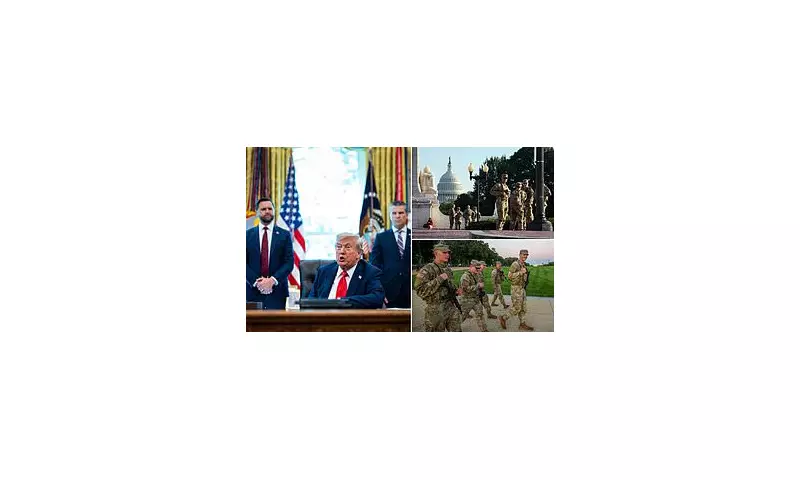
Former US President Donald Trump has ignited a political firestorm with a provocative claim that Americans might prefer a 'dictator' to the current administration, during a charged rally speech targeting his critics and federal policies in the nation's capital.
A Controversial Comparison
Addressing a fervent crowd of supporters, the Republican frontrunner made his most explicit comparison yet between democratic governance and authoritarian rule. His remarks came as part of a broader critique of what he termed the 'federal clampdown' in Washington DC, though he provided no specific evidence for this alleged crackdown.
Targeting Political Opponents
Trump didn't spare his political adversaries, launching particularly sharp criticism at the Biden administration's policies and what he described as 'weaponised' federal institutions. His rhetoric took aim at both Democratic opponents and Republican figures who have questioned his leadership or policies.
Context of Growing Tension
The former president's comments come amid heightened political tensions in the United States, with Trump maintaining a dominant position in Republican primary polling despite facing multiple legal challenges. His latest remarks are likely to fuel further debate about the nature of political discourse and the boundaries of acceptable criticism in American politics.
Reactions and Implications
While Trump's supporters cheered the uncompromising rhetoric, political analysts suggest these comments may complicate efforts to appeal to moderate voters in a potential general election rematch. The 'dictator' comparison represents one of Trump's most direct challenges to democratic norms since leaving office.
As the political landscape continues to evolve, Trump's latest provocation ensures that questions about democratic principles and authoritarian tendencies will remain at the forefront of American political discourse leading into the next election cycle.





